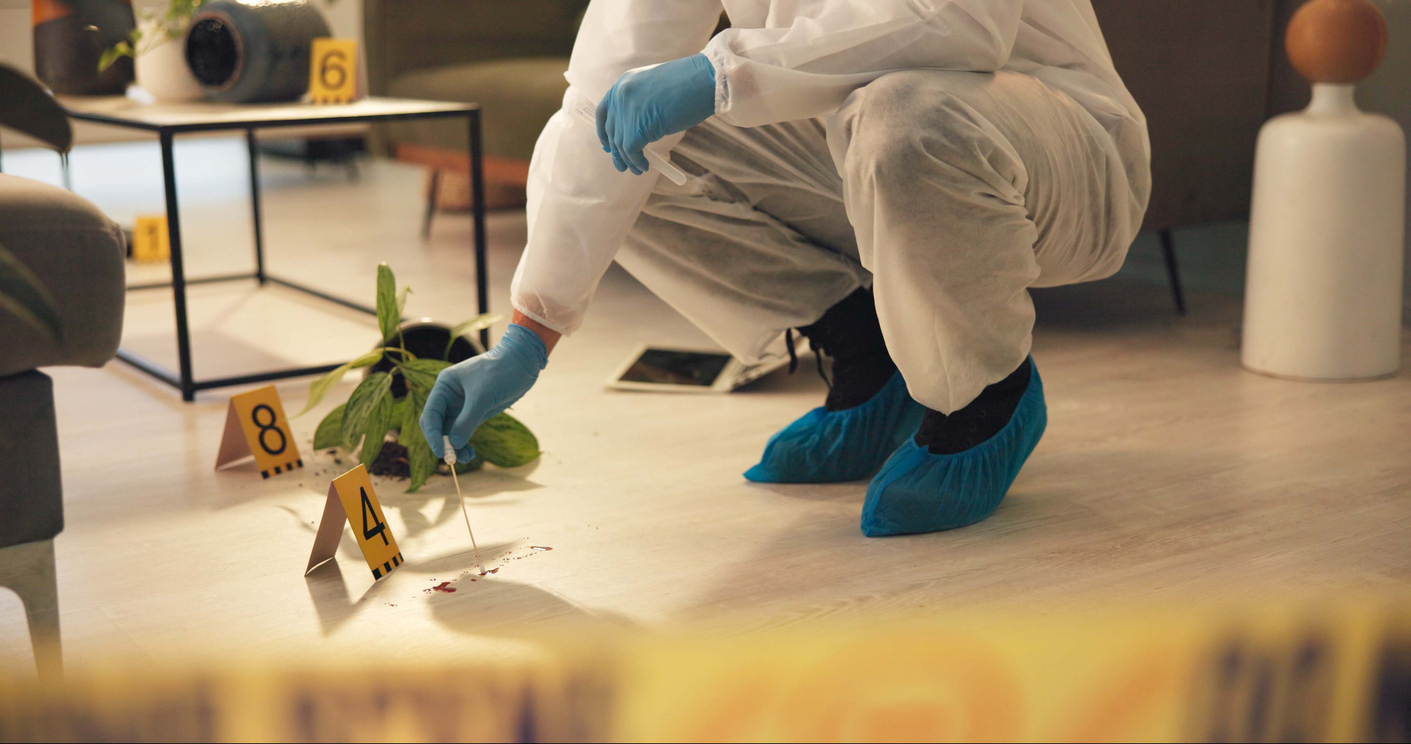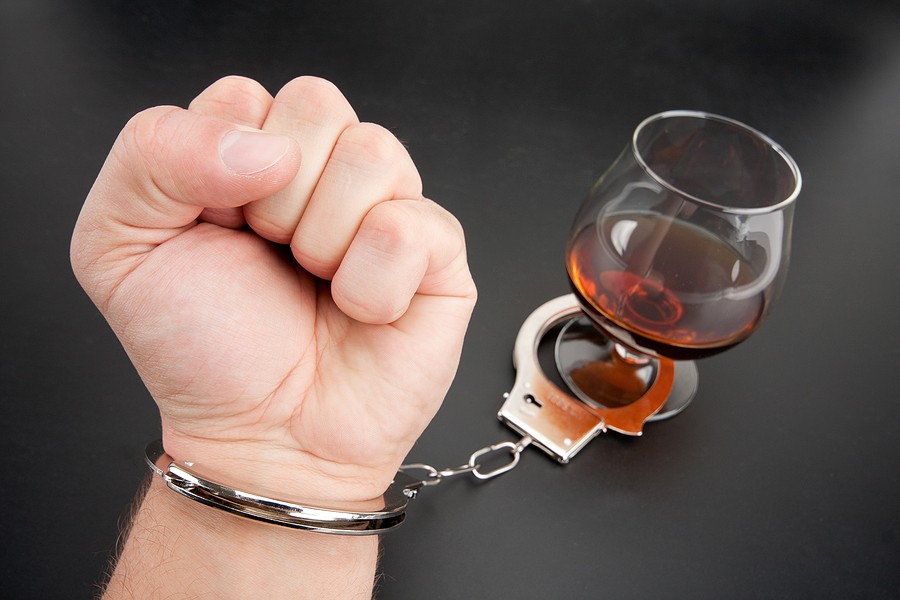Why Is DNA Valuable Evidence in Criminal Cases?
Due to its scientific reliability, DNA evidence is seen as the gold standard in criminal investigations. This type of evidence can link a suspect to a weapon, a crime scene, or a victim, creating a powerful narrative in court. However, DNA evidence is not completely foolproof, and there are ways to challenge its use in Ohio criminal cases.
What Is DNA and Where Is It Found?
Deoxyribonucleic acid (DNA) is the genetic material that makes each individual unique (identical twins excepted). It is the self-replicating material in nearly all living organisms as the main constituent of chromosomes. Britannica states that DNA codes genetic information for the transmission of inherited traits.
In criminal cases, DNA samples can be sourced from blood, hair, saliva, semen, or skin cells. Samples may be left at crime scenes, on weapons, or other objects involved in criminal activities. Forensic laboratories can analyze DNA samples to generate profiles, which are compared to those of defendants. If a match exists, prosecutors can present it as definitive proof linking the suspect to the crime.
What Are the Potential Issues with DNA Evidence?
DNA evidence is only as strong as the methods used to collect, analyze, and interpret it, and errors can occur at any stage. An experienced criminal defense attorney can use these weaknesses to challenge the evidence. The following factors can undermine the reliability of DNA evidence, making it susceptible to challenge:
- Contamination: Even a small amount of foreign DNA can contaminate a sample. This can occur during the collection process, at the crime scene, while samples are transported, or in the lab. Investigators follow strict protocols to avoid contamination, but with human error, the possibility exists. For example, an investigator who touches multiple surfaces at a crime scene without changing gloves could inadvertently transfer DNA from one location to another.
- Chain of custody: Pursuant to Rule 901(A) of the Ohio Rules of Evidence, all physical evidence must be authenticated or identified before it may be admitted in court. For DNA evidence, the prosecution must establish a clear, unbroken chain of custody. This requires demonstrating that the evidence was properly collected, transported, and stored, with documentation for each individual who handled it. Any gaps or inconsistencies in the chain of custody open the door to a challenge. A DNA sample that was left unattended or stored improperly could have been tampered with or degraded.
- Lab errors: Forensic laboratories, where the analysis of DNA evidence is conducted, are not infallible. Errors can occur for various reasons, including faulty equipment, inadequate quality control procedures, inaccurate documentation, and human error in interpreting results. In some cases, labs have been found to cut corners or falsify results.
- Mixed or partial DNA samples: Samples that contain genetic material from more than one individual can make it difficult to determine whose DNA is present. Sometimes, a DNA sample collected from a crime scene is a partial profile rather than a full one. Partial profiles may not conclusively identify an individual, leaving room for doubt.
- Statistical misinterpretation: DNA evidence is often presented with a statistical probability, such as a one in a million or one in a billion chance that it belongs to someone other than the defendant. Although compelling, these statistics can be misleading. The accuracy of DNA probability relies on the assumption that the DNA profile matches perfectly. If the profile is partial or contaminated, these statistics may be meaningless.
What Are the Legal Strategies for Challenging DNA Evidence?
Criminal defense attorneys in Ohio can scrutinize procedures used by law enforcement and forensic experts and question the integrity of the evidence. The following are defense strategies used to challenge DNA evidence:
Challenge Collection and Handling
Defense attorneys can review protocols followed by law enforcement at crime scenes and challenge how DNA evidence was collected and handled. They can examine whether investigators wore proper protective gear, avoided cross-contamination, and followed established guidelines for collecting biological samples. If there are questions about the integrity of DNA evidence, the defense can file a pretrial motion to suppress. This can lead to a hearing where law enforcement and lab technicians are cross-examined about their practices. If the defense can show that procedures were flawed, the judge may exclude DNA evidence from the trial.
Examine the Chain of Custody
Defense attorneys can request detailed records of the DNA evidence journey from the crime scene to the courtroom. When unexplained gaps or irregularities in the documentation of who handled the evidence, how it was stored, or how it was transported are identified, the defense could argue that it may have been tampered with or compromised.
Request Independent DNA Testing
This is a powerful defense tactic. Independent testing of DNA evidence by a reputable third-party lab can verify whether the original analysis was conducted correctly. Independent testing can uncover contamination, errors, or inconsistencies that could weaken the prosecution’s case.
Hire an Expert Witness
DNA evidence can be complex and may require specialized knowledge to interpret. Defense attorneys can hire forensic experts to challenge the prosecution’s findings. An expert witness can testify about potential contamination, lab errors, and the limitations of DNA analysis and explain to juries how mixed samples, partial profiles, and statistical misinterpretation can lead to wrongful conclusions.
DNA evidence can be a powerful tool for the prosecution, but it is not infallible. Successfully challenging this evidence can mean the difference between conviction and acquittal. If you face criminal charges involving DNA in Ohio, contact Watson Kuhlman, LLC at 216-208-7858. Our seasoned criminal defense lawyers understand the nuances of DNA challenges. We have the knowledge, skills, and resources to protect your rights.


 Email Us Now
Email Us Now







